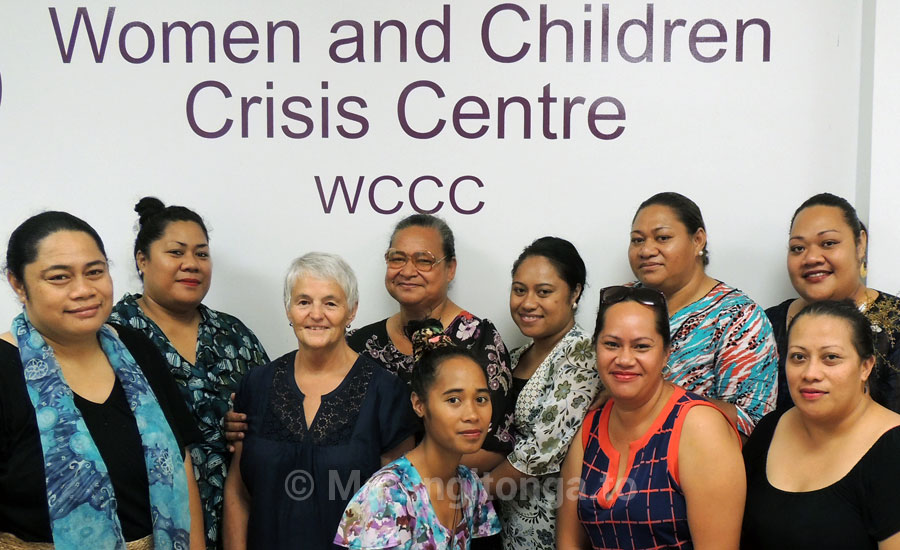By Finau Fonua

By Finau Fonua
The Women & Children Crisis Centre (WCCC) says that it has assisted more than 1,800 women and children in Tonga since its inception in 2009. The Nuku’alofa based centre says that there have been some dramatic cases of domestic disturbances, including incidents of child molesting.
The director of the WCCC, ‘Ofa Likiliki, said that Tonga is not an exception to the global problems of family violence.
“Reports of violence against women and children in Tonga are increasing – between 2000 and 2013, the Tongan Police have received more than 5,000 reported cases of domestic violence with the majority of victims being women and children. The WCCC between the years 2009 and 2014 has assisted more than 1,800 women and children through its counselling advocacy and support services and temporary safe housing,” she said.
The Women & Children Crisis Centre is the second centre of its kind to be established in Tonga that is dedicated to supporting victims of domestic violence.
“The WCCC was pioneered by a group of women and some male advocate supporters who were determined to develop an NGO that is efficient and professional in its deliverance of quality support services to women and children, survivors of violence, throughout Tonga. The Mo’ui Ke Fiefia Safe House provides a 24 hour temporary safe house accommodation to women and children who are victims of violence.”
She said that the WCCC’s work was informed by the experiences of their clients. She said the most dramatic cases were incidents of child molesting, and incidents where women were kept in severe isolation by their partners.
“Male family members over a long period of time rape young girls as young as five years of age right up to 17 years of age, the ones 5-13 are the hardest to deal with.”
She explained that other cases involved isolation, “Where women are living in harsh coercive control situations, where she is isolated from her family and not allowed to go anywhere or talk to anyone without the consent of her husband or partner, and nobody has any idea because it’s not physical violence, which is more obvious.”
Some clients at the centre had revealed their personal accounts of domestic violence and mistreatment.
One woman at the centre described how she suffered beatings from her former husband. The woman said that her ex-husband attacked her even after they had already divorced and separated. She explained “Suddenly my ex-husband showed up walking towards me. I started to ask where he had been and I hadn’t completed my sentence when I totally blacked out – When I came back into consciousness, he punched me right on my left eye, pulled me down and started to kick me, and then threw me into the sea. He came down after me and tried to drown me. The girl who was with me ran and called for help.”
Another young woman at the centre described how she had been abused as a child. She said “I was in class 6 when my father began treating me in a way that was morally wrong. He would touch me and say things that you should not say to your daughter. He told me not to tell anyone, especially anyone on my mother’s side of the family – I finally had the courage to tell my aunty on my mother’s side about the way my father was treating me. The police took me to the Crisis Centre so that I could stay in the safe house. It is difficult with my family right now. I feel safe and free here. At the Safe House I have learned to count and also the ABC in Tongan and English and I can spell some words.”
"Ofa believes that the problems of domestic violence stem from a lack of belief in human rights.
“Violence against Women and Girls is the most pervasive human rights violation throughout the world. The lack of knowledge and belief in human rights is the fundamental root cause of why key agencies and communities, both women and men, boys and girls believe that women and men are not equal and hence why discrimination and violence is an accepted practice at various levels”
She voiced her dissatisfaction of Tonga’s land ownership laws which declare that land can only be owned by males. “Women‘s lack of property and land ownership contributes to women‘s low social status and their vulnerability to poverty. It is also linked to women‘s low representation in decision making processes at the highest level.”
“Because women cannot own land in Tonga, the access to financial assistance is restricted. This is also intimately linked to the reasons why women find it difficult to walk away from a violent relationship,” she said.



